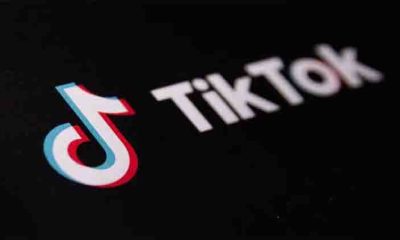South Korean startup Rebellions Inc launches an artificial intelligence (AI) chip on Monday, racing to win government contracts as Seoul seeks a place for local companies in the exploding AI industry.
The company’s ATOM chip is the latest Korean attempt to challenge global leader Nvidia Corp (NVDA.O) in the hardware that powers the potentially revolutionary AI technology.
AI is the talk of the tech world, as ChatGPT – a chatbot from Microsoft-backed (MSFT.O) OpenAI that generates articles, essays, jokes and even poetry – has become the fastest-growing consumer app in history just two months after launch, according to UBS.
Nvidia, a US chip designer, has a commanding share of high-end AI chips, making up about 86% of the computing power of the world’s six biggest cloud services as of December, according to Jefferies chip analyst Mark Lipacis.
The South Korean government wants to foster a domestic industry, investing more than $800 million over the next five years for research and development in a bid to lift the market share of Korean AI chips in domestic data centres from essentially zero to 80% by 2030.
“It’s hard to catch up to Nvidia, which is so far ahead in general-purpose AI chips,” said Kim Yang-Paeng, senior researcher at the Korea Institute for Industrial Economics and Trade. “But it’s not set in stone because AI chips can carry out different functions and there aren’t set boundaries or metrics.”
Rebellions’ ATOM is designed to excel at running computer vision and chatbot AI applications. Because it targets specific tasks rather than doing a wide range, the chip consumes only about 20% of the power of an Nvidia A100 chip on those tasks, said Rebellions co-founder and chief executive Park Sunghyun.
A100 is the most popular chip for AI workloads, powerful enough to create – in industry lingo, “train” – the AI models. ATOM, designed by Rebellions and manufactured by Korean giant Samsung Electronics Co (005930.KS), does not do training.
While countries such as Taiwan, China, France, Germany and the United States have extensive plans to support their semiconductor companies, the South Korean government is rare in singling out AI chips for a concentrated push.
Seoul will put out a notice this month for two data centres, called neural processing unit farms, with only domestic chipmakers allowed to bid, an official at the Ministry of Science and ICT told Reuters.
‘TWISTING ARMS’
In a country whose firms supply half the world’s memory chips, the authorities want to create a market that can be a test bed for AI chipmakers, aiming to foster global competitors.
“The government is twisting the arm of the data centres and telling them, ‘Hey, use these chips’,” Rebellions’ Park, a former Morgan Stanley engineer, told Reuters.
Without such support, he said, data centres and their customers would likely stick with Nvidia chips.
Sapeon Korea Inc also plans to participate in the project, the SK Telecom Co (017670.KS) subsidiary said.
FuriosaAI, backed by South Korea’s top search engine Naver Corp (035420.KS) and state-run Korea Development Bank (KDB.UL), told Reuters it will also bid.
“There’s a lot of momentum behind Nvidia’s developments. These startups have got to build momentum, so that will take time,” said Alan Priestley, an analyst at IT research firm Gartner. “But government incentives such as what’s happening in Korea could well affect the market share within Korea.”
Rebellions will seek to participate in the government project in a consortium with KT Corp (030200.KS), a big Korean telecom, cloud and data centre operator, in the hopes of weaning Nvidia customers off the U.S. supplier.
“Amid high dependence on foreign GPUs (graphics processing units) globally, the cooperation between KT and Rebellions will allow us to have an ‘AI full stack’ that encompasses software and hardware based on domestic technology,” said KT vice president Bae Han-chul.
Rebellions declined to give a forecast for its AI chip venture. It has raised 122 billion won ($96 million), including 30 billion won from KT in a funding round joined by Singapore’s Temasek Pavilion Capital and 10 billion won grant from the South Korean government.
Post Views: 57


 Fashion3 months ago
Fashion3 months ago
 Sports3 months ago
Sports3 months ago
 Sports3 months ago
Sports3 months ago
 Fashion2 months ago
Fashion2 months ago
 World3 months ago
World3 months ago
 pakistan3 months ago
pakistan3 months ago
 pakistan3 months ago
pakistan3 months ago






















